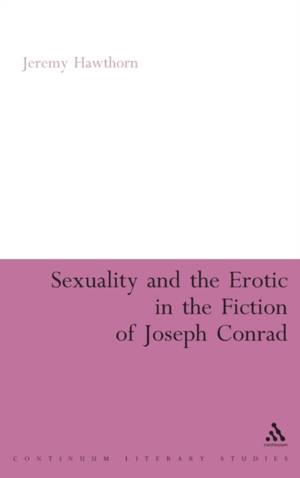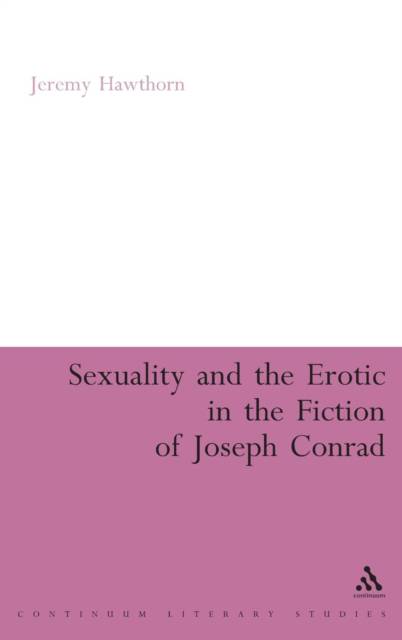
- Retrait gratuit dans votre magasin Club
- 7.000.000 titres dans notre catalogue
- Payer en toute sécurité
- Toujours un magasin près de chez vous
- Retrait gratuit dans votre magasin Club
- 7.000.0000 titres dans notre catalogue
- Payer en toute sécurité
- Toujours un magasin près de chez vous
Description
The book presents a sustained critique of the interlinked (and contradictory) views that the fiction of Joseph Conrad is largely innocent of any interest in or concern with sexuality and the erotic, and that when Conrad does attempt to depict sexual desire or erotic excitement then this results in bad writing. Jeremy Hawthorn argues for a revision of the view that Conrad lacks understanding of and interest in sexuality. He argues that the comprehensiveness of Conrad's vision does not exclude a concern with the sexual and the erotic, and that this concern is not with the sexual and the erotic as separate spheres of human life, but as elements dialectically related to those matters public and political that have always been recognized as central to Conrad's fictional achievement. The book will open Conrad's fiction to readings enriched by the insights of critics and theorists associated with Gender Studies and Post-colonialism.
Spécifications
Parties prenantes
- Auteur(s) :
- Editeur:
Contenu
- Nombre de pages :
- 190
- Langue:
- Anglais
- Collection :
Caractéristiques
- EAN:
- 9780826495273
- Date de parution :
- 23-03-07
- Format:
- Livre relié
- Format numérique:
- Ongenaaid / garenloos gebonden
- Dimensions :
- 170 mm x 236 mm
- Poids :
- 979 g

Les avis
Nous publions uniquement les avis qui respectent les conditions requises. Consultez nos conditions pour les avis.






